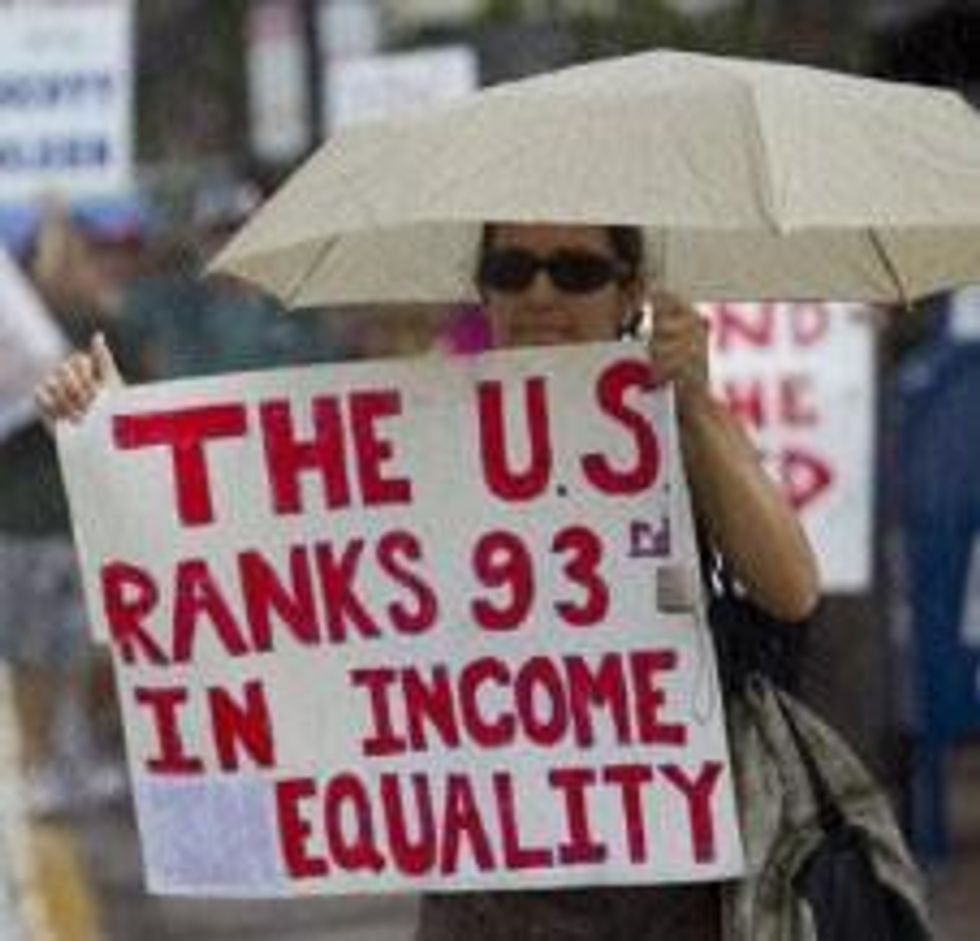Yesterday, the New York Times reported on an alarming new study: researchers have documented that the least educated white Americans are experiencing sharp declines in life expectancy. Between 1990 and 2008, white women without a high school diploma lost a full five years of their lives, while their male counterparts lost three years. Experts say that declines in life expectancy in developed countries are exceedingly rare, and that in the U.S., decreases on this scale "have not been seen in the U.S. since the Spanish influenza epidemic of 1918." Even during the Great Depression, which wrought economic devastation and severe psychic trauma for millions of Americans, average life expectancy was on the increase.
What are the reasons for the disturbing drop in life expectancy among poor white folks, and in particular for the unusually large magnitude of the decline? According to the Times, researchers are baffled: one expert said, "There's this enormous issue of why ... It's very puzzling and we don't have a great explanation." Undoubtedly, the increasing numbers of low-income Americans without health insurance is a major contributor factor. Researchers also say that lifestyle factors such as smoking, which has increased among low-income white women, play a role; poor folks tend to engage in more risky health behaviors than their more affluent counterparts.
I will offer an alternative hypothesis, one which is not explicitly identified in the Times article: inequality. In the U.S., the period between 1990 and 2008, which is a period that saw such steep declines in life expectancy for the least well-off white people, is also a period during which economic inequality soared. Moreover, there is a compelling body of research that suggests that inequality itself -- quite apart from low incomes, or lack of health insurance -- is associated with more negative health outcomes for those at the bottom of the heap. One of the most famous series of studies of the social determinants of health, Britain's Whitehall Studies, had as their subjects British civil servants, all of whom health insurance and (presumably) decent enough jobs. Intriguingly, these studies
found a strong association between grade levels of civil servant employment and mortality rates from a range of causes. Men in the lowest grade (messengers, doorkeepers, etc.) had a mortality rate three times higher than that of men in the highest grade (administrators).
The Whitehall studies found that while workers in the lower grades were more likely to be at risk for coronary heart disease due to factors such as higher rates of smoking, higher blood pressure, etc., even after controlling for those confounding factors, these workers still experienced significantly higher mortality rates. So what was behind such disparate health incomes among high-status and low-status workers? Researchers pointed the finger at inequality, hypothesizing that various psychosocial factors associated with inequality -- such as the higher levels of stress at work and at home experienced by the lower tier workers, as well as their lower levels of self-esteem -- were behind the dramatic differences in mortality rates.
I believe that inequality-related stressors are likely to be the determining factors in declining American life expectancies, as well. I'm surprised, in fact, that the Times article did not specifically identify inequality as a causal factor, because the health risks associated with economic inequality are well-established in the scientific literature. For decades, the United States has been making a series of political choices that has distributed wealth and power upwards and left working Americans not only poorer and sicker, but also feeling far more burdened and distressed, and experiencing far less security and control over their lives. The consequences of these choices have been devastating, and absent a dramatic reversal in our political course, they are likely to get even worse. Where inequality is concerned, Republicans have their foot on the accelerator, while the best the Democrats seem to be able to do is to (temporarily) put their foot on the brake.
We are on a trajectory all right, and it's not a good one.




